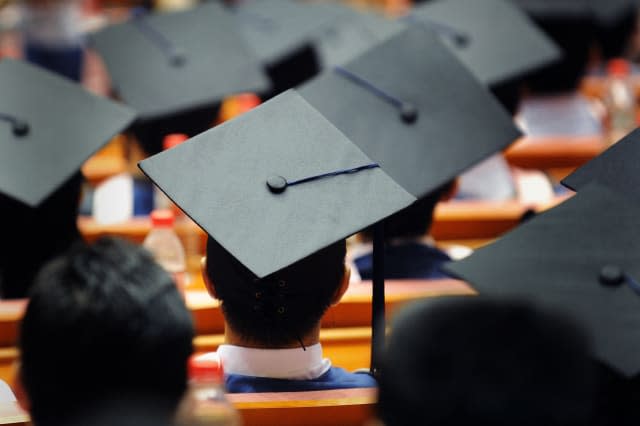Turning student grants into loans 'will increase debt for poorer students'

George Osborne's decision to transform university student grants into loans will "substantially" increase the debts of poorer students, but save the Government much smaller sums in the long run, an independent economic think-tank has warned.
Institute of Fiscal Studies director Paul Johnson told a parliamentary committee that the "large majority" of the new maintenance loans would probably never be repaid, because students receiving them are already unlikely to earn enough over their careers to repay existing debts.
Instead, it would be graduates on "middling" incomes who found the lifetime cost of their university education rising, as they were more likely to repay the debts in full.
Mr Johnson also told the House of Commons Treasury Committee that it was "a shame" that the Treasury had stopped publishing graphs alongside the Budget showing the impact of tax and benefit changes on different parts of the population, after the IFS's own analysis showed that the poorest in society were bearing "much more" of the burden of the Chancellor's cuts than the wealthiest.
He told the committee that Mr Osborne's £7.20-an-hour National Living Wage would have only a "pretty small" impact on the IFS's figures, which showed the poorest tenth of households losing an average of about £800 a year as a result of tax and benefit changes in the Budget.
Mr Johnson repeated IFS warnings about the deep cuts in unprotected Whitehall department budgets implied by the Government's decision to "ring-fence" spending on priorities like the NHS, schools and - following a decision in the summer budget - defence.
Unprotected departments, like environment and transport, will lose around one-third of their budgets between 2010 and 2019, he said, adding: "The shape of the state will be very different in 2020 than it was in 2010 - and certainly than in 2000 - with much more going on health and pensions and much less on most other parts of public spending. There's an important political debate about whether that's the right shape."
Mr Osborne announced in his July 8 Budget that the £3,400-a-year maintenance grants currently available to students from low-income households in England and Wales will be converted to loans from the 2016/17 academic year. The debt will be repayable once graduates are earning £21,000, but will be written off if it is not repaid in full after 30 years.
Mr Johnson told the Treasury Committee that the IFS was undertaking a study on the likely impact on graduates, and had found that, while those on "middling" incomes would pay a "significant" amount more, most students from poorer backgrounds would never pay the money back so the impact on them would be "zero".
The Government would "get back more of the loans that it makes", but in the long run the savings to the Treasury would be "much smaller" than the figures suggest, he said.
"Broadly speaking, the debt of students from poorer families will rise substantially because the grant is being turned into a loan, and the result will be that an even higher proportion of them will not ever pay off the full loan," Mr Johnson told MPs. "From the current 75%,that number will become higher.
"Because the majority are not, in any case, paying off the full loan at the moment, the impact after graduation will be zero. The fact you are loading more debt onto them doesn't change the amount they end up paying.
"The change to the threshold is quite significant in terms of the amount of repayment students will end up making. That will over the lifetime of graduates on middling incomes make a significant difference to the amount they end up paying."
Asked about the cash saved by the Government from the switch from grants to loans, Mr Johnson said: "It has a significant short-run impact on the public finances, despite the fact that the large majority of that probably won't be paid back as it is layering debt on top of debt that already probably won't be repaid."
But he added: "The short-run accounting impact on the public finances flatters the long-run impact, which will be much smaller."
More on AOL Money:
What are the prospects for this year's graduates?
Which university's graduates earn the most?
46 graduates chase each job vacancy





